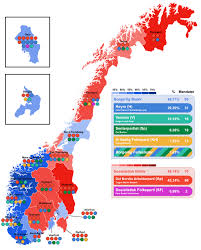Norway’s Political Landscape Transforms Ahead of Critical 2025 Parliamentary Election

Upcoming Parliamentary Election: A Critical Moment for Norway
Norway is preparing for its parliamentary elections scheduled for September 8, 2025, where all 169 members of the Storting will be elected. Advance voting will be possible from August 11 to September 5.
Recent Political Developments
The current political landscape is marked by significant changes, with Prime Minister Jonas Gahr Støre leading a minority government. A notable shift occurred in January 2025 when the Centre Party left the governing coalition over EU energy policy disagreements, resulting in Norway’s first one-party government in 25 years. This departure led to eight cabinet ministers being replaced, including Centre Party leader and finance minister Trygve Slagsvold Vedum, who was succeeded by former Prime Minister Jens Stoltenberg.
Conservative Momentum
The Conservative Party has gained significant momentum, as evidenced by the September 2023 local elections where they secured 25.9 percent of the vote compared to Labour’s 21.6 percent – marking the first time since 1924 that Labour had not been the top vote-getter in local elections. The turnout for these elections was 62.4 percent.
Electoral System and Process
Norway’s electoral system is based on proportional representation in multi-member constituencies, ensuring that the number of seats won by each party is directly proportionate to their voter support. The country has a long tradition of coalition governments, rarely seeing a single party win an outright majority. This proportional representation system is designed to create more diverse parliaments and greater representation of minority interests, though it can lead to slower decision-making processes.
Challenges and Controversies
The political landscape has been affected by recent controversies, including allegations of undisclosed stock trades involving multiple Norwegian politicians. These incidents led to significant consequences, including the resignation of Minister Ola Borten Moe in July and the removal of Anniken Huitfeldt as foreign minister in an October 2023 cabinet reshuffle.









